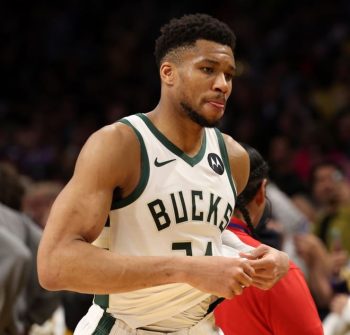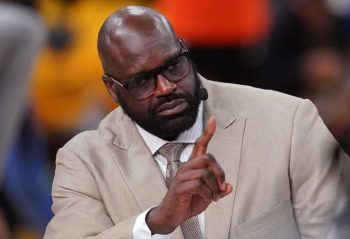NBA
The Next All-Stars: Southwest Division

To make it to the NBA, to be considered among the world’s best at the sport of basketball, is quite the accomplishment. The dedication, talent and work ethic required to reach such a height is astronomical, and it’s what separates them from the everyday athlete.
But that feat alone doesn’t satisfy everyone. For some, the climb is endless, the journey to the top evergoing, with the ultimate goal to be considered among the best of the best: an All-Star.
Every year, players make their bid to be considered among the 24 best in the NBA. And, seemingly every year, more and more prove worthy of consideration. With that in mind, Basketball Insiders set out to identify the next crop of All-Stars in each division.
We’ve already looked at the Atlantic, Central, Northwest and Pacific divisions. Today, we’ll look at the Southwest. Let’s get to it.
Zion Williamson — New Orleans Pelicans
This one’s obvious, isn’t it?
Williamson hype-train has been running since his time in high school. Now, on the world’s greatest stage, he did everything he could to prove that, not only was that hype warranted, but that he belonged among the best of the NBA’s best.
So, let’s keep this short: despite the fact that he missed the first 44 games of the season, the promise Williamson showed upon his return to the court — 23.6 points, 6.8 rebounds and 2.2 assists while shooting 58.9 percent from the field and a blistering 46.2 percent from three — should have him representing the Pelicans at the midseason classic for years to come.
Had he been healthy to start the year, one could argue that Williamson would have already been ineligible for this list. Either way, don’t expect to see his name here next season.
Ja Morant, Memphis Grizzlies
Another future shoo-in, Morant took a Grizzlies squad that was supposed to be one of the worst in the league to the postseason’s doorstep. Prior to the league’s shutdown, and despite Williams’ return to the court, he was arguably a lock for Rookie of the Year as well.
Morant was comfortable with the NCAA-to-NBA transition from the jump; in 54 games, the 20-year-old posted 17.6 points, 3.5 rebounds and 6.5 assists per game. He was fearless, looking to make something happen whenever he could. That energy, the excitement Morant can generate on any given night and on any given play, is exactly what the NBA All-Star Game is all about and, beyond the stats, it’s why he’ll find his way into the game sooner rather than later.
Like Williamson, don’t expect to see Morant’s name on this list for long.
Dejounte Murray, San Antonio Spurs
Murray’s 2019-20 line — 10.7 points, 5.8 rebounds and 4.1 assists — won’t blow anyone away. And, in a star-studded Western Conference, it would be difficult for anyone to break through into the All-Star Game.
But Murray certainly has the potential and, more importantly, the coming opportunity.
Murray hasn’t seen much growth as a player on the offense. But that’s not for lack of talent — the Spurs have just never needed him to contribute that much on that end of the court. Even this season, his third, Murray managed just 9.3 shots per game and only 537 on the season, good for 120th in the NBA. But, with LaMarcus Aldridge heading into the last year of his deal and DeMar DeRozan a potential free agent (player option) next season, Murray is in line for a significantly larger role on offense.
The volume alone would give Murray’s production a major boost, which would make him an interesting case when considered alongside his defensive prowess. Murray certainly flashed some offensive ability at the University of Washington, where he averaged 16.1 points in his lone season with the Huskies, so it isn’t too much of a stretch to think he could do the same at the NBA level.
If Murray can take that step and do so efficiently — Murray shot 37.8 percent from three and managed a 50.7 percent effective field goal percentage — he would be hard to ignore once the selection process got underway. And, if he somehow managed to advance his offensive game to that of his defense? Watch out.
Tim Hardaway Jr., Dallas Mavericks
Some may seriously question how Hardway, in a loaded Western Conference, could ever earn an All-Star nod. But it’s more probable than you may think.
Back in 2014, in the midst of the Atlanta Hawks’ first 60-win season, Kyle Korver earned a reserve spot while he averaged only 12.1 points, 4.1 rebounds and 2.6 assists.
Of course, Korver also led the NBA in three-point percentage, knocking them down from behind the arc at a ridiculous 49.2 percent clip. That said, it’s hard to deny Hardaway’s talent on offense, with comparable averages to Korver’s lone All-Star appearance, the historic three-point percentage notwithstanding.
Going back to 2016, his fourth season and the first in which he averaged more than 25 minutes per game, Hardaway has found no trouble dropping it in the bucket, posting 16.3 points per game on strong shooting numbers. Even this season, as the Mavericks’ third option to Luka Doncic and Kirstaps Porzingis, Hardaway managed 15.8 points per game and shot over 40 percent from three. A near-perfect complement to the Doncic-Porzingis duo, Hardaway should prove the beneficiary of the attention they draw on offense for years to come. And, as they improve (and draw even further attention), so too should Hardaway and his own numbers.
With that in mind, it wouldn’t be unprecedented to see Hardaway earn a nod. He’ll need some help from his teammates, and maybe a bit of luck in regards to other All-Stars losing a step, but don’t be shocked if Hardaway’s is one of the many names under consideration come next season.
Robert Covington, Houston Rockets
Like Hardaway, Covington is going to need help to break into the mid-season classic. But, also like Hardaway, he’s set to thrive in a role behind the Rockets’ stars, James Harden and Russell Westbrook.
Covington has made a name for himself on the defensive side of the ball. But, in Houston, he’s staked his claim as one of the NBA’s biggest pests: in 14 games, and spending most of his time at center, Covington totaled 35 blocks — an average of 2.5 per game that, over the course of the season, would place him second only to Hassan Whiteside’s 3.1.
Covington is 6-foot-7.
Even his season-long average of just 1.3 blocks per game has him alone amongst the trees; every other player in the top-20, save for Daniel Theis (6-foot-8) and Bam Adebayo (6-foot-9), is at 6-foot-10 or taller. Were he somehow able to sustain his ridiculous average with the Rockets over the course of the season, he would be just the fourth player ever 6-foot-7 or shorter to average at least two blocks per game.
And don’t let that ridiculousness distract from Covington’s other qualities. In his time split between Houston and the Minnesota Timberwolves, Covington averaged 1.5 steals per game. He also posted 12.8 points per and shot 34.9 percent from three — and, with the number of wide-open shots he should see because of Harden and Westbrook, a la Hardaway with Doncic and Porzingis, expect both of those numbers to jump next season.
It can take a lot to reach All-Star status. The effort, drive and focus required to reach that next level is so great, not even the superstars of the NBA world could rest on their laurels. But, almost every year, there seems to be a new crop of players that have put in the work, putting the league on notice and pushing themselves into that conversation.
From the Southwest? These may be the next guys to do just that next season.











